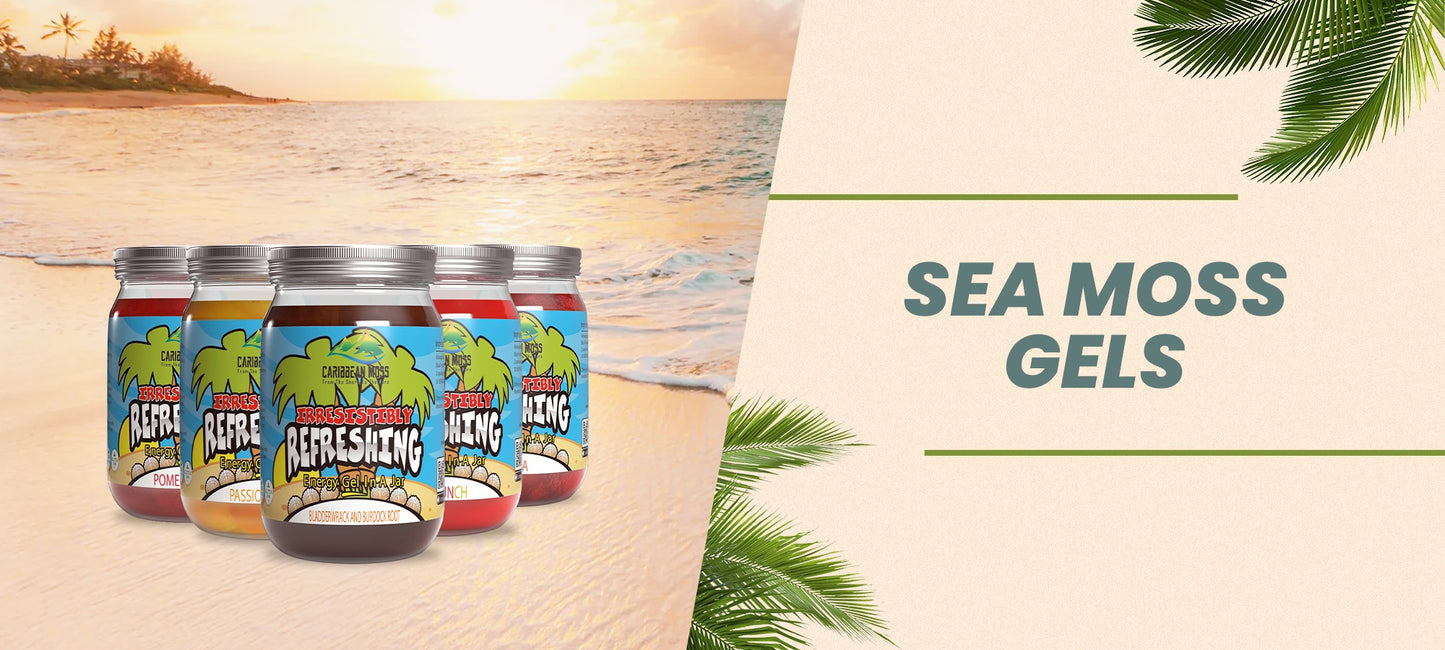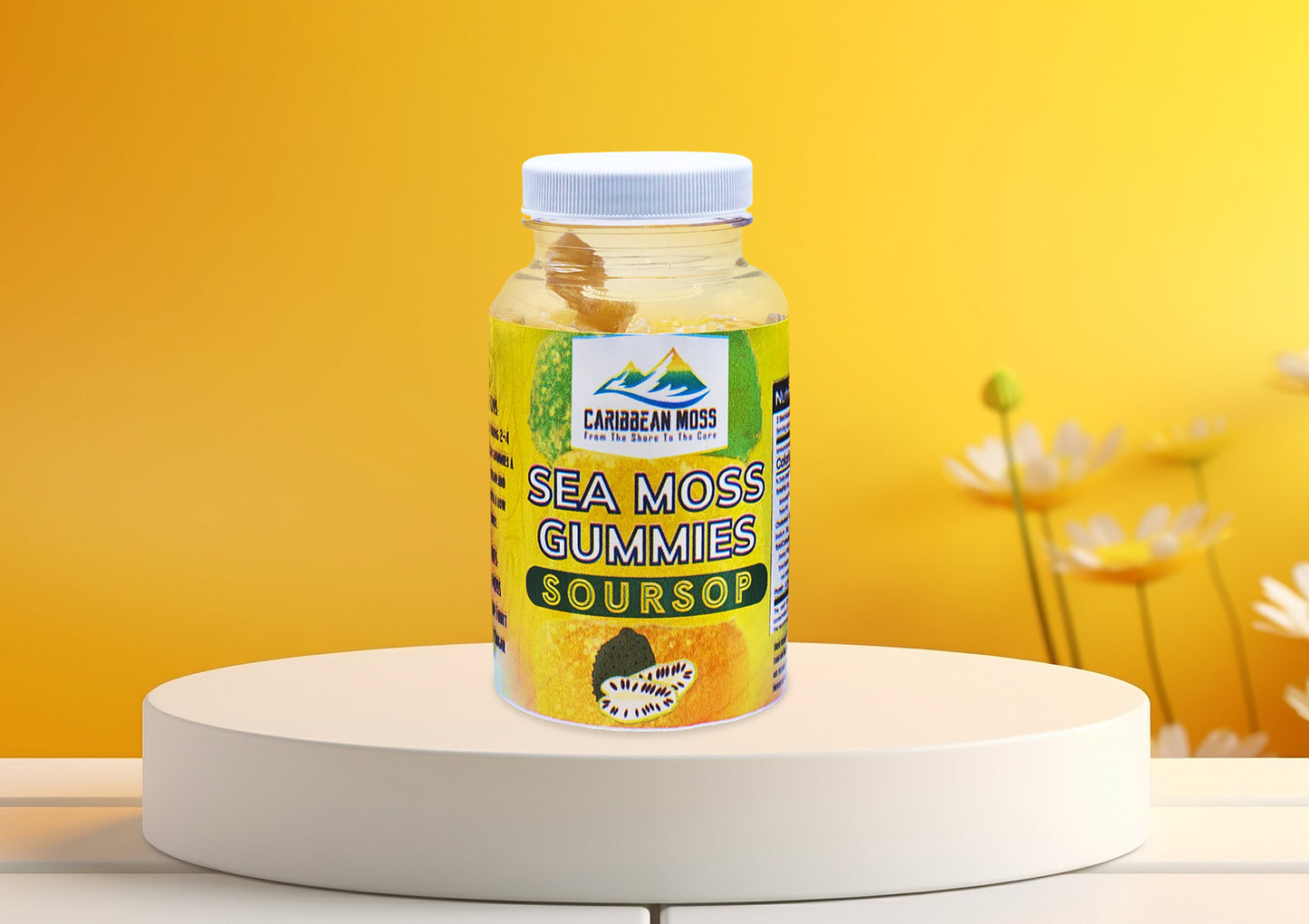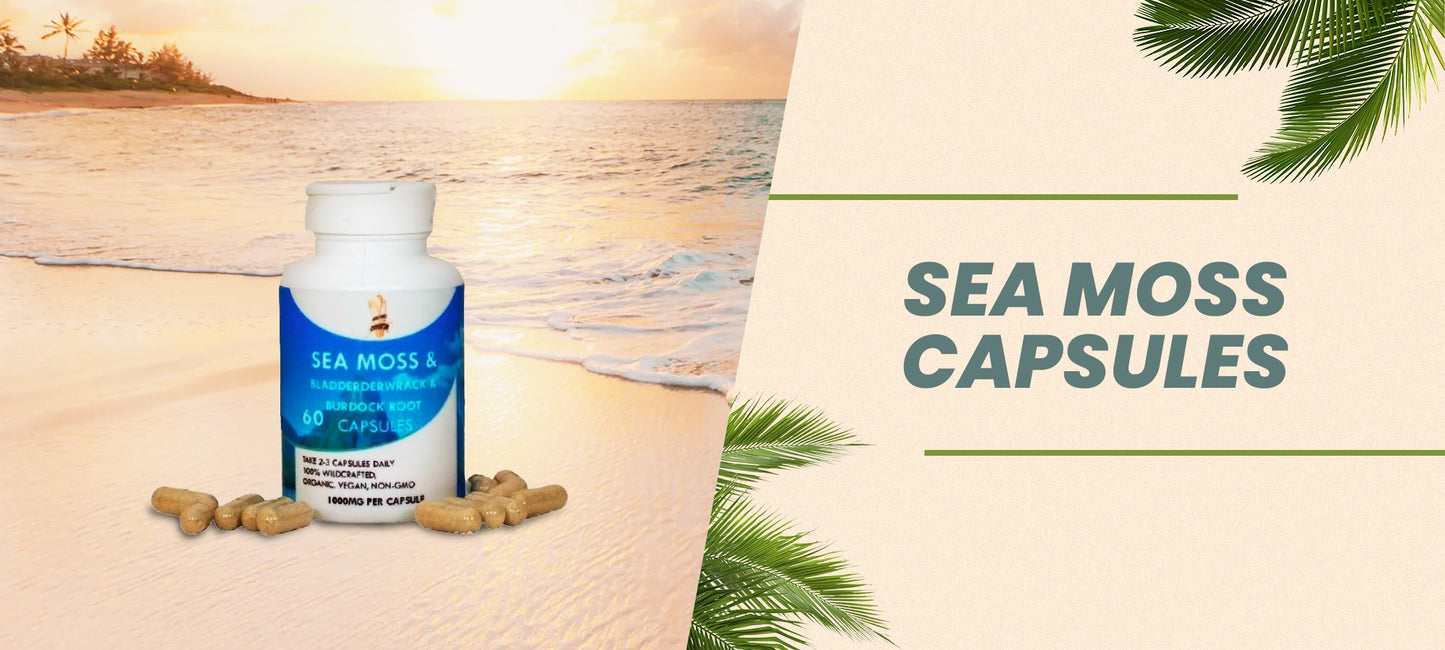The benefits of Sea Moss
"The seaweed is always greener in somebody else's lake," a renowned animated crab once sung. However, you don't have to be a musically inclined crustacean to benefit from sea moss, which has a slew of possible health advantages.
Sea moss, often known as Irish moss, is a species of red algae (or Chondrus crispus, if you want to get formal about it). It's collected for its carrageenan, a thickening agent used in dairy products like ice cream, but it's also available in raw form and as a supplement in the form of pills, powders, gels, and gummies.
The health benefits of sea moss are numerous:
"There appear to be quite a few health benefits of sea moss," Czerwony warns, "but they haven't been widely investigated, and sea moss supplements haven't been approved by the United States Food and Drug Administration."
There's a lot of studies on the health advantages of seaweed, which is the relative of sea moss, but not on sea moss specifically. Nonetheless, it's generally considered safe to eat, and its health advantages are comparable to those of other seaweeds.
It's good for your heart:
Seaweed is a superfood in its own right. It contains more fibre than most vegetables, which is a good thing because fibre provides a variety of health benefits. It can help you control your blood sugar, lower your cholesterol, and minimise your chance of developing chronic conditions like diabetes and heart disease.
"Sea moss has been shown in studies to help lower bad cholesterol, which is one of the risk factors for heart disease," explains Czerwony. It has also been proven to aid in the reduction of blood pressure, which is another important element in heart health.
It has the potential to help people lose weight:
Do you recall how high the fiber content of seaweed is? Foods high in fiber are full, so they may help you avoid overeating. "Fiber keeps us fuller for longer," Czerwony explains, which could aid with weight loss.
It contains a lot of iodine:
Iodine is one of the most important nutrients for a healthy thyroid, but you can only acquire it through your diet because your body does not produce it. (However, most individuals receive enough iodine from dairy, shellfish, and iodized salt.)
It is beneficial to intestinal health:
Bacteria, both beneficial and dangerous, are abundant in your digestive tract. Because gut health is linked to general health, balancing out those bacteria is critical to your overall well-being. Sea moss, for example, is a good source of fibre and living microorganisms. "It has the potential to help replace the healthy bacteria in our gut," Czerwony explains.
It has the potential to improve your immune system:
According to one study, Atlantic salmon that ate sea moss had a more efficient immunological response than those that did not. Of course, fish and humans have very different bodies, and no equivalent research on humans have yet been done.
Nonetheless, a healthy gut is linked to a healthy immune system. Sea moss is also high in iron and antioxidants, both of which are beneficial to the immune system.
It can help you gain muscle and recuperate from your workouts:
Taurine, an amino acid found in sea moss, is beneficial to muscle growth. "We acquire little micro-tears in our muscles when we exercise," Czerwony says, "but amino acids can aid with that recuperation."
Sea moss also contains roughly 6 grammes of protein per 100 grammes, making it an excellent source of protein for athletes. Just don't count on sea moss alone to help you recuperate from your workout! You must still ensure that you are getting enough good food, hydration, and relaxation.



